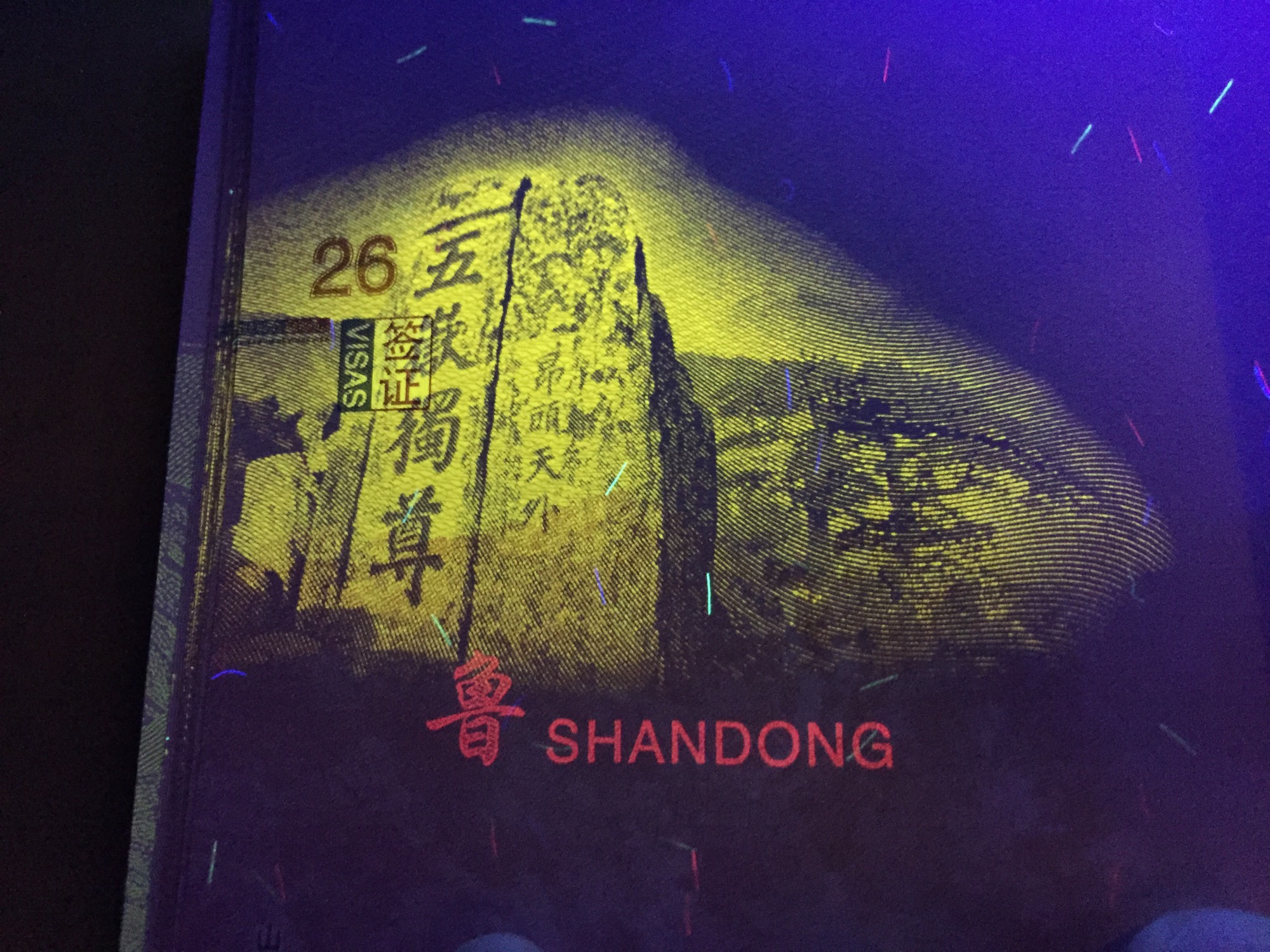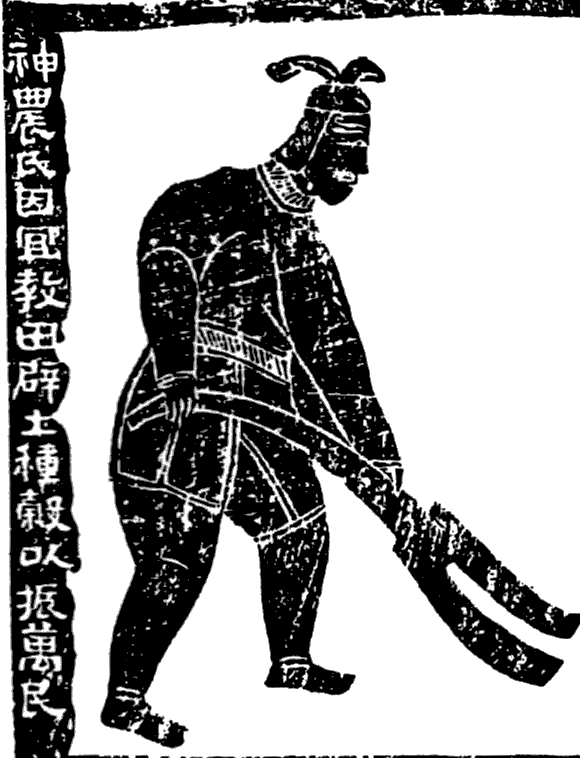|
Dì
''Di'' () is one of the oldest Chinese terms for the earth and a key concept or figure in Chinese philosophy and religion. It is widely considered to be one of three powers (', ) which are Heaven, Earth, and Humanity (, ). There is a significant belief in Taoism which focuses on ''tian'', as well as the forces of ''di'' (earth) and water, which are held to be equally powerful, instead of earth and humanity. Etymology ''Dì'' is the modern Mandarin Chinese pronunciation. The Old Chinese pronunciation has been reconstructed as ''*lˤej-s''. The Chinese character is a phono-semantic compound, combining the radical ("earth", "dirt") with the (former) sound marker ( Modern Chinese ''yě'', Old Chinese ''*lajʔ''). The relationship between ''tian'' and ''di'' is important to Taoist cosmology. They are among the "three realms" of the world (''tian'', earth, and water) presided over by the Three Great Emperor-Officials, and thought to maintain the two poles of the "three ... [...More Info...] [...Related Items...] OR: [Wikipedia] [Google] [Baidu] |
Chinese Gods And Immortals
Chinese gods and immortals are beings in various Chinese religions seen in a variety of ways and mythological contexts. Many are worshiped as deities because Chinese folk religion, traditional Chinese religion is Polytheism, polytheistic, stemming from a Pantheism, pantheistic view that divinity is inherent in the world. The gods are energies or principles revealing, imitating, and propagating the way of heaven (, ''Tian''), which is the supreme godhead manifesting in the celestial pole, northern culmen of the starry vault of the skies and its order. Many gods are ancestors or men who became deities for their heavenly achievements. Most gods are also identified with stars and constellations. Ancestors are regarded as the equivalent of Heaven within human society, and therefore, as the means of connecting back to Heaven, which is the "utmost ancestral father" (, ). There are a variety of immortals in Chinese thought, and one major type is the ''Xian (Taoism), xian'', which is ... [...More Info...] [...Related Items...] OR: [Wikipedia] [Google] [Baidu] |
Chinese Folk Religion
Chinese folk religion comprises a range of traditional religious practices of Han Chinese, including the Chinese diaspora. This includes the veneration of ''Shen (Chinese folk religion), shen'' ('spirits') and Chinese ancestor worship, ancestors, and worship devoted to Chinese deities and immortals, deities and immortals, who can be deities of places or natural phenomena, of human behaviour, or progenitors of Chinese kin, family lineages. Stories surrounding these gods form a loose canon of Chinese mythology. By the Song dynasty (960–1279), these practices had been Religious syncretism, blended with Buddhist, Confucian, and Taoist teachings to form the popular religious system which has lasted in many ways until the present day. The government of China, government of modern China generally tolerates popular religious organizations, but has suppressed or persecuted those that they fear would undermine social stability. After the fall of the Qing dynasty in 1911, governments ... [...More Info...] [...Related Items...] OR: [Wikipedia] [Google] [Baidu] |
Three Great Emperor-Officials
The Three Great Emperor-Officials (), Sanguan, or the Three Officials are three of the highest ''shen'' in some branches of religious Taoism, and subordinate only to the Jade Emperor (玉帝 yùdì). The Three Great Emperor-Officials are the , the and the . They administer all phenomena in the three spheres, and were thought to be able to take away sin. Chinese playwrights popularized the worship of these gods by including a skit before plays with shared themes between each performance called ''The Official of Heaven Brings Happiness''. They have been worshipped since the second century CE. Full titles :*The Heavenly Official, full title: , also known as the . :*The Earthly Official, full title: , also known as the . :*The Water Official, full title: , also known as the Legend The Ming dynasty text Comprehensive Collection of Deities from the Three Religions (Sanjiao Soushen Daquan) states that the Three Officials (Sanguan Dadi) are the three sons born to Chen Zidao and t ... [...More Info...] [...Related Items...] OR: [Wikipedia] [Google] [Baidu] |
Shangdi
Shangdi (), also called simply Di (), is the name of the Chinese Highest Deity or "Lord Above" in the Chinese theology, theology of the classical texts, especially deriving from Shang dynasty, Shang theology and finding an equivalent in the later ''Tian, Tiān'' ("Heaven" or "Great Whole") of Zhou dynasty, Zhou theology. Although the use of "Tian" to refer to the Absolute (philosophy), absolute God of the universe is predominant in Chinese religion today, "Shangdi" continues to be used in a variety of traditions, including certain Chinese philosophy, philosophical schools, certain strains of Chinese Buddhism, Taoism, Confucianism, some Chinese salvationist religions (notably Yiguandao) and Protestantism in China, Chinese Protestant Christianity. In addition, it is commonly used by contemporary Chinese (both mainland and overseas) and by religious and secular groups in East Asia, as a name of a singular universal deity and as a non-religious translation for God in Abrahamic relig ... [...More Info...] [...Related Items...] OR: [Wikipedia] [Google] [Baidu] |
Mandarin Chinese
Mandarin ( ; zh, s=, t=, p=Guānhuà, l=Mandarin (bureaucrat), officials' speech) is the largest branch of the Sinitic languages. Mandarin varieties are spoken by 70 percent of all Chinese speakers over a large geographical area that stretches from Yunnan in the southwest to Xinjiang in the northwest and Heilongjiang in the northeast. Its spread is generally attributed to the greater ease of travel and communication in the North China Plain compared to the more mountainous south, combined with the relatively recent spread of Mandarin to frontier areas. Many varieties of Mandarin, such as Southwestern Mandarin, those of the Southwest (including Sichuanese dialects, Sichuanese) and the Lower Yangtze Mandarin, Lower Yangtze, are not mutually intelligible with the Beijing dialect (or are only partially intelligible). Nevertheless, Mandarin as a group is often placed first in lists of languages by number of native speakers (with nearly one billion). Because Mandarin originated in ... [...More Info...] [...Related Items...] OR: [Wikipedia] [Google] [Baidu] |
Mount Tai
Mount Tai () is a mountain of historical and cultural significance located north of the city of Tai'an. It is the highest point in Shandong province, China. The tallest peak is the ''Jade Emperor Peak'' (), which is commonly reported as being tall. Mount Tai is known as the eastern mountain of the Sacred Mountains of China. It is associated with sunrise, birth, and renewal, and is often regarded the foremost of the five. Mount Tai has been a place of worship for at least 3,000 years and served as one of the most important ceremonial centers of China during large portions of this period. Because of its sacred importance and dramatic landscape, it was made a UNESCO World Heritage Site in 1987. It meets 7 of the 10 evaluation standards for World Heritage sites, and is listed as a World Heritage site that meets the most of the standards, along with the Tasmanian Wilderness World Heritage Area in Australia. An earthquake or thunderstorm occurred around Mount Tai in 1831 BC or 1652 ... [...More Info...] [...Related Items...] OR: [Wikipedia] [Google] [Baidu] |
Confucianism
Confucianism, also known as Ruism or Ru classicism, is a system of thought and behavior originating in ancient China, and is variously described as a tradition, philosophy, Religious Confucianism, religion, theory of government, or way of life. Founded by Confucius in the Hundred Schools of Thought era (c. 500 BCE), Confucianism integrates philosophy, ethics, and social governance, with a core focus on virtue, Harmonious Society, social harmony, and Filial piety, familial responsibility. Confucianism emphasizes virtue through self-cultivation and communal effort. Key virtues include ''Ren (philosophy), ren'' (benevolence), ''Yi (philosophy), yi'' (righteousness), ''Li (Confucianism), li'' (propriety), ''Wisdom, zhi'' (wisdom), and ''Xin (virtue), xin'' (sincerity). These values, deeply tied to the notion of ''tian'' (heaven), present a worldview where human relationships and social order are manifestations of sacred moral principles.. While Confucianism does not emphasize an ... [...More Info...] [...Related Items...] OR: [Wikipedia] [Google] [Baidu] |
Emperor Of China
Throughout Chinese history, "Emperor" () was the superlative title held by the monarchs of imperial China's various dynasties. In traditional Chinese political theory, the emperor was the " Son of Heaven", an autocrat with the divine mandate to rule all under Heaven. Emperors were worshiped posthumously under an imperial cult. The lineage of emperors descended from a paternal family line constituted a dynasty, and succession in most cases theoretically followed agnatic primogeniture. The emperor of China was an absolute monarch. During the Han dynasty, Confucianism gained sanction as the official political theory. The absolute authority of the emperor came with a variety of governing duties and moral obligations; failure to uphold these was thought to remove the dynasty's Mandate of Heaven and to justify its overthrow. In practice, emperors sometimes avoided the strict rules of succession and dynasties' purported "failures" were detailed in official histories written by ... [...More Info...] [...Related Items...] OR: [Wikipedia] [Google] [Baidu] |
Taoism
Taoism or Daoism (, ) is a diverse philosophical and religious tradition indigenous to China, emphasizing harmony with the Tao ( zh, p=dào, w=tao4). With a range of meaning in Chinese philosophy, translations of Tao include 'way', 'road', 'path', or 'technique', generally understood in the Taoist sense as an enigmatic process of transformation Ultimate reality, ultimately underlying reality. Taoist thought has informed the development of various practices within the Taoist tradition and beyond, including forms of Taoist meditation, meditation, Chinese astrology, astrology, qigong, feng shui, and Neidan, internal alchemy. A common goal of Taoist practice is self-cultivation, a deeper appreciation of the Tao, and more harmonious existence. Taoist ethics vary, but generally emphasize such virtues as ''wu wei, effortless action'', ziran, ''naturalness'', ''pu (Taoism), simplicity'', and the Three Treasures (Taoism), three treasures of compassion, frugality, and humility. The co ... [...More Info...] [...Related Items...] OR: [Wikipedia] [Google] [Baidu] |
Tian
Tian () is one of the oldest Chinese terms for heaven and a key concept in Chinese mythology, philosophy, and cosmology. During the Shang dynasty (17th―11th century BCE), the Chinese referred to their highest god as '' Shangdi'' or ''Di'' (, 'Lord'). During the following Zhou dynasty, Tian became synonymous with this figure. Before the 20th century, worship of Tian was an orthodox cosmic principle of China. In Taoism and Confucianism, Tian (the celestial aspect of the cosmos, often translated as "Heaven") is mentioned in relationship to its complementary aspect of '' Dì'' (, often translated as "Earth"). They are thought to maintain the two poles of the Three Realms of reality, with the middle realm occupied by Humanity (, ), and the lower world occupied by demons (, ) and "ghosts", the damned, (, ). Tian was variously thought of as a "supreme power reigning over lesser gods and human beings" that brought "order and calm... or catastrophe and punishment", a deity, destiny, a ... [...More Info...] [...Related Items...] OR: [Wikipedia] [Google] [Baidu] |
Agriculture (Chinese Mythology)
Agriculture is an important theme in Chinese mythology. There are many myths about the invention of agriculture that have been told or written about in China. Chinese mythology refers to those myths found in the historical geographic area of China. This includes myths in Chinese and other languages, as transmitted by Han Chinese as well as other ethnic groups (of which fifty-six are officially recognized by the current administration of China). Many of the myths about agriculture involve its invention by such deities or cultural heroes such as Shennong, Houji, Houtu, and Shujun: of these Shennong is the most famous, according to Lihui Yang. There are also many other myths. Myths related to agriculture include how humans learned the use of fire, cooking, animal husbandry and the use of draft animals, inventions of various agricultural tools and implements, the domestication of various species of plants such as ginger and radishes, the evaluation and uses of various types o ... [...More Info...] [...Related Items...] OR: [Wikipedia] [Google] [Baidu] |






